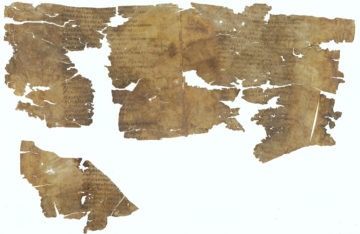Judith Schalansky at The Paris Review:

There are not many surviving literary works older than the songs of Sappho: the down-to-earth Epic of Gilgamesh, the first ethereal hymns of the Rigveda, the inexhaustible epic poems of Homer and the many-stranded myths of Hesiod, in which it is written that the Muses know everything. “They know all that has been, is, and will be.” Their father is Zeus, their mother Mnemosyne, a titaness, the goddess of memory.
We know nothing. Not much, at any rate. Not even whether Homer really existed, or the identity of that author whom we for the sake of convenience have dubbed “Pseudo-Longinus,” who quotes Sappho’s verses on the power of Eros in the surviving fragments of his work on the sublime, thereby preserving her lines for future generations, namely us.
more here.
